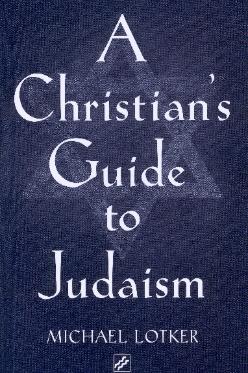Sample “Guide”
Sample Guide to Attending Jewish Events
The following is an excerpt from chapter 8, “Your Guide to Attending Jewish
Events.” It is presented with permission of the Paulist Press – all rights
reserved.
BAR OR BAT MITZVAH
The words Bar/Bat Mitzvah mean “Son/Daughter of the Commandment.” Your
invitation may be to a Bas Mitzvah; Bas is the Yiddish/Ashkenazi pronunciation of
Bat. The ceremony to which you have been invited is held in honor of the child
reaching the age of majority under Jewish law. This is traditionally 12 years of age
for a girl and 13 years for a boy (yes, Judaism recognizes that girls mature
sooner), and means that the child is now responsible for observing Jewish law.
One privilege of Jewish Law is that an adult Jew may lead a religious service and
be called to read from the Torah scroll. When you attend a Bar/Bat Mitzvah, you
are attending the religious service at which the child will lead some part (or even
all) of the services as well as read from the Torah scroll.
Regarding Jewish students older than thirteen, there are two more recent
developments. The Reform movement introduced the idea of a Confirmation
ceremony for 16 year old students. This ceremony, which usually takes place on
the holiday of Shavuot, is a group graduation of those boys and girls who have
continued their studies past Bar/Bat Mitzvah age. You may also find that you have
been invited to the Bar/Bat Mitzvah of an adult. Increasingly, adult Jews mark
their re-commitment to Jewish life and study with such a ceremony, especially if
they were never formally became a Bar/Bat Mitzvah as children.
When: The vast majority of B’nai Mitzvah (B’nai is the plural) take place on
Shabbat, that is Friday nights and Saturdays. Technically, it is possible to hold a
Bar/Bat Mitzvah on any day in which the Torah is read from the scroll. This would
include Mondays and Thursdays (traditional market days in ancient times) as well
as certain Jewish holidays.
Who Will Be There: Since this will most often be a standard Sabbath service, in
addition to the friends and family of the child, you are likely to find other members
of the congregation. Remember, the synagogue portion of the Bar/Bat Mitzvah is
not a private party but part of a community worship service.
Where Will It Be: In most cases, at the synagogue. Occasionally, a catering hall
or other location may be the site for the ceremony and reception.
What’s Going to Happen: This will be a standard Sabbath service with particular
opportunities for recognition of the child and his or her family. You will notice
special, often moving, moments when the family presents the child with his/her
tallit or prayer shawl, and when the rabbi and other members of the congregation
(often including the child’s parents) are called upon to bless, congratulate and
speak to the child. The child may conduct some or all of the service but will
almost certainly be called to read or chant from the Torah scroll itself and read or
chant from the prophetic section (“Haftarah”) of the Hebrew Bible. The portion of
the scripture the child is reading is the specific parasha, or portion of the week and
this same portion is also being read in synagogues throughout the world.
Typically, members of the child’s family and friends will be called to the reading
table to say blessings at the Torah and watch while the rabbi or cantor and child
read from the Torah scroll. Being called to the Torah is called an aliyah (meaning
“going up”) and is among the greatest of honors. This honor is usually restricted
to Jews since the blessing recited speaks of God’s having “chosen us” and “given
us” (that is the Jewish people) the Torah. It is very common for the child to deliver
a sermon after having read his Torah and Haftarah sections. In this way, the child
is fulfilling the mitzvah (or commandment) of teaching our tradition.
At the conclusion of the service, it is quite common to have a reception for the
child and her family (you will have been invited). The reception may be as simple
as some coffee and treats at the synagogue or may be a very elaborate catered
affair held at the synagogue or at another location.
Do’s and Don’ts: The do’s and don’ts relating to attendance at Jewish services
(see above) apply here since you will be attending a Jewish service. I would
recommend that you not bring any gift to the service itself, rather save it for the
reception. Regarding gift giving, it is common to give a check or savings bond to
the child. If you want to give a monetary gift that has a special significance, you
might give a gift of eighteen or a multiple of eighteen such as thirty six or one
hundred eighteen dollars. Hebrew letters each have numerical equivalents and
the Hebrew word chai meaning “life” has the value of eighteen. Sephardic Jews
will commonly give gifts in multiple of five – an association with the five fingers of
the “hamsa,” or hand of God that protects us. A personal gift chosen in
consultation with the family would also be very appreciated: it might be a book or
religious article of Jewish significance.

